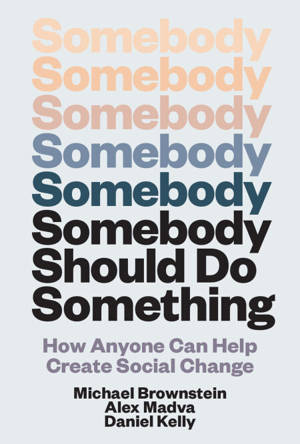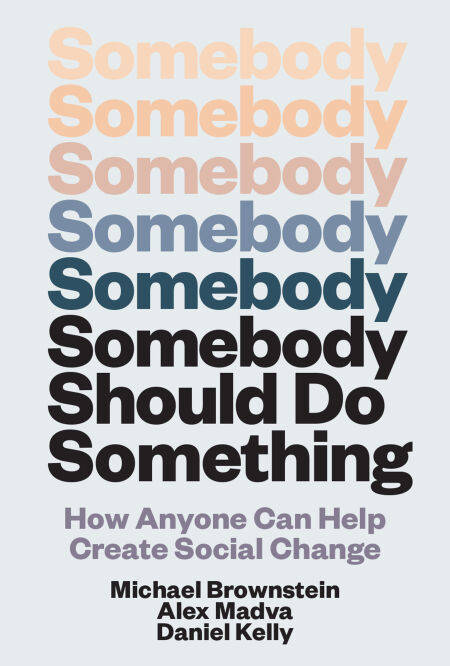
- Retrait gratuit dans votre magasin Club
- 7.000.000 titres dans notre catalogue
- Payer en toute sécurité
- Toujours un magasin près de chez vous
- Retrait gratuit dans votre magasin Club
- 7.000.0000 titres dans notre catalogue
- Payer en toute sécurité
- Toujours un magasin près de chez vous
Somebody Should Do Something EBOOK
How Anyone Can Help Create Social Change
Michael Brownstein, Alex Madva, Daniel Kelly
Ebook | Anglais
32,48 €
+ 32 points
Format
Description
A novel and scientific approach to creating transformative social change—and the surprising ways that each of us can help make a real difference.
Changing the world is difficult. One reason is that the most important problems, like climate change, racism, and poverty, are structural. They emerge from our collective practices: laws, economies, history, culture, norms, and built environments. The dilemma is that there is no way to make structural change without individual people making different—more structure-facing—decisions. In Somebody Should Do Something, Michael Brownstein, Alex Madva, and Daniel Kelly show us how we can connect our personal choices to structural change and why individual choices matter, though not in the way people usually think.
The authors paint a new picture of how social change happens, arguing that our most powerful personal choices are those that springboard us into working together with others—warehouse worker Chris Smalls’s unionization at Amazon is one powerful example. Taking inspiration from the writer Bill McKibben, they stress how one “important thing an individual can do is be somewhat less of an individual.”
Organized into three main parts, the book first diagnoses the problem of “either/or” thinking about social change, which stems from the false choice of making better personal choices or changing the system. Then it offers a different way to think about social change, anchored in a new picture of human nature emerging across the social sciences. Finally, the authors explore ways of putting this picture into practice. Neither a how-to manual nor an activist’s guide, Somebody Should Do Something pairs stories with science (plus some jokes) to help readers recognize their own power, turning resignation about climate change and racial injustice into actions that transform the world.
Changing the world is difficult. One reason is that the most important problems, like climate change, racism, and poverty, are structural. They emerge from our collective practices: laws, economies, history, culture, norms, and built environments. The dilemma is that there is no way to make structural change without individual people making different—more structure-facing—decisions. In Somebody Should Do Something, Michael Brownstein, Alex Madva, and Daniel Kelly show us how we can connect our personal choices to structural change and why individual choices matter, though not in the way people usually think.
The authors paint a new picture of how social change happens, arguing that our most powerful personal choices are those that springboard us into working together with others—warehouse worker Chris Smalls’s unionization at Amazon is one powerful example. Taking inspiration from the writer Bill McKibben, they stress how one “important thing an individual can do is be somewhat less of an individual.”
Organized into three main parts, the book first diagnoses the problem of “either/or” thinking about social change, which stems from the false choice of making better personal choices or changing the system. Then it offers a different way to think about social change, anchored in a new picture of human nature emerging across the social sciences. Finally, the authors explore ways of putting this picture into practice. Neither a how-to manual nor an activist’s guide, Somebody Should Do Something pairs stories with science (plus some jokes) to help readers recognize their own power, turning resignation about climate change and racial injustice into actions that transform the world.
Spécifications
Parties prenantes
- Auteur(s) :
- Editeur:
Contenu
- Nombre de pages :
- 352
- Langue:
- Anglais
Caractéristiques
- EAN:
- 9780262383714
- Date de parution :
- 15-09-25
- Format:
- Ebook
- Protection digitale:
- Adobe DRM
- Format numérique:
- ePub

Les avis
Nous publions uniquement les avis qui respectent les conditions requises. Consultez nos conditions pour les avis.






